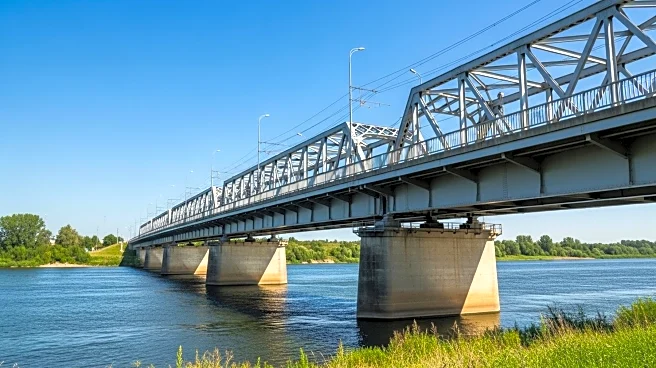What is the story about?
What's Happening?
The Borno State government in Nigeria is seeking an additional 61 billion naira to rebuild infrastructure damaged by the collapse of the Alau dam. The dam's failure last year resulted in severe flooding, causing the deaths of at least 37 people and displacing two million residents. The government has initiated reconstruction efforts, including the rebuilding of the dam and dyke system, and has provided relief camps, food aid, and cash handouts to affected communities. However, the ongoing insurgency by the Boko Haram group has complicated maintenance efforts. The state has already raised 28.2 billion naira through national and state governments and aid agencies, distributing funds to over 101,330 households and supporting traders, places of worship, and private schools.
Why It's Important?
The dam collapse and subsequent flooding have highlighted the vulnerabilities in infrastructure maintenance in regions affected by insurgency. The request for additional funds underscores the significant financial burden on the Borno State government as it attempts to recover from the disaster. The situation has disrupted the lives of millions, affecting housing, education, and employment, and has placed additional strain on a region already dealing with a high number of internally displaced persons due to violence. The reconstruction efforts are crucial for restoring normalcy and preventing future disasters, but they also require substantial financial and logistical support.
What's Next?
The Borno State government is awaiting approval for the requested funds to continue rebuilding efforts. The focus will be on repairing bridges, road networks, and hospitals, as well as upgrading boreholes to address water scarcity. The government aims to prevent further flooding by desilting rivers and constructing new drainage systems. The success of these initiatives will depend on securing the necessary funding and overcoming challenges posed by ongoing insurgency. Stakeholders, including aid agencies and government bodies, are expected to play a critical role in supporting these efforts.
Beyond the Headlines
The dam collapse has exposed deeper issues related to infrastructure resilience in conflict zones. The inability to maintain critical infrastructure due to security concerns poses long-term risks to communities. The event also raises questions about the effectiveness of disaster preparedness and response strategies in regions facing both natural and man-made threats. Addressing these challenges requires a coordinated approach that integrates security, development, and humanitarian efforts.
















